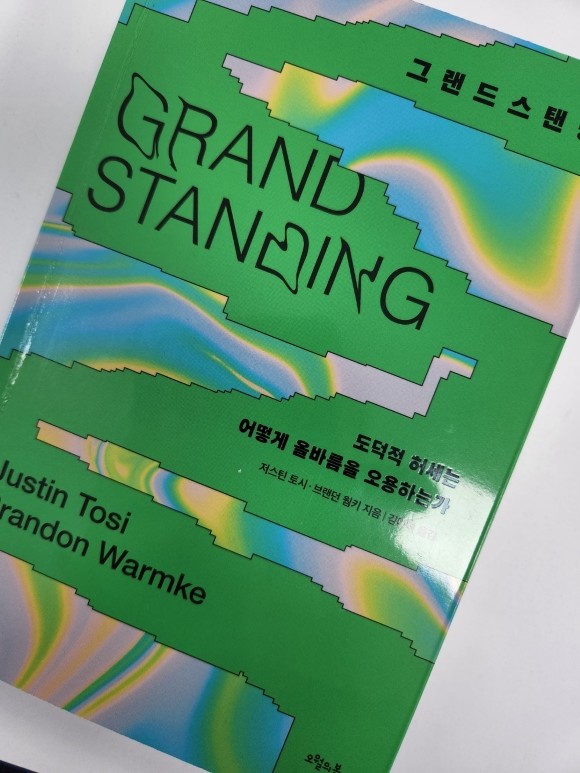

It allows you to boss people around or blame people.

And one way to get social status is by being seen as a very moral person. One of the most basic fundamental human desires is for status. So what are some of the human reasons people are so tempted to engage in grandstanding? Politically speaking, this is not a partisan thing. You've written that this isn't something that happens purely on the left or on the right. And it's not a morally admirable way of treating other people. So for all those reasons we go into in the book, we think that there's a strong presumption against grandstanding, it's just not a good way of treating public discourse. That's a pretty pathetic use of morality. And as Nietzsche would point out, this is just not what's what morality is for. They're treating public discourse as a way to, to egotistically seek status. They're privileging themselves over others. And a grandstander is typically not acting virtuously. And then we also argue that as many moral philosophers pointed out, it's important to be virtuous. So when you see social media piling on, using people to make yourself look good, that's just not respectful. It's a bit of a crying wolf problem.īut we also argued that grandstanding is disrespectful. It makes harder to muster when it's really appropriate, and it devalues the signal. When everything on Twitter and Facebook makes you angry, you make other people think that you're really sensitive because you're angry all the time and outraged, that devalues the currency of outrage. We also argue that it has the effect of what we call outrage exhaustion. We all start to think of moral discourse as a kind of nasty, unhelpful project and that's bad. When you see people engaging in public discourse, just to show off, just to make themselves look good. It pushes us further apart and makes us hate each other more and increases cynicism. One way that something can be bad is by having bad consequences. It is usually morally bad and should generally be avoided." How is grandstanding morally bad? I want to quote you here, "Grandstanding is worse than being annoying. Warmke joined Tapestry host Mary Hynes to discuss the morality of standing on a podium and hoping people will see you as a moral authority. The former is necessary for progress, for justice and for democracy, but the latter, Warmke believes, can be destructive for those exact same ideals. In his book, he argues that there's a fine line between fighting for what you believe in and simple attention seeking. Warmke's learned his lesson now and, along with co-author Justin Tosi, he's put together a book on avoiding the pratfalls of the social media stage, called Grandstanding: The Use and Abuse of Moral Talk. Grandstanding: The Use and Abuse of Moral Talk is published by Oxford University Press.


 0 kommentar(er)
0 kommentar(er)
